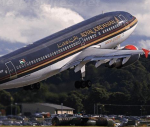You are here
Dealing with North Korea
Mar 16,2017 - Last updated at Mar 16,2017
Rocket launches galore in North Korea. Colours and flames in the sky. It is all a bit like a peacock spreading his tail.
Murders abound. Is this a butcher’s shop — an uncle, a half-brother and a couple of high-placed generals and no doubt others?
Kim Jong-un, the president, is no Hamlet and murder does not seem to give him doubts.
When he was leaving office, president Barack Obama warned Donald Trump that the nuclear-armed, rocket-raqueteer Kim would be his most immediate foreign policy challenge. But apart from saying he is prepared to meet Kim, Trump has not offered a plan.
The Financial Times, in a recent editorial, said Kim has bad cards but plays them well. One could add that the US has good cards too, but plays them badly, and that goes for three presidents: Bill Clinton, George W. Bush and Barack Obama.
At one time, Washington did play a good hand, but that was way back in Clinton’s last months.
Indeed, at the time, it seemed it might well be Clinton’s only foreign policy success.
He sent his secretary of state, Madeleine Albright, to Pyongyang where she was feted by the regime of Kim’s father.
It looked like a deal, whereby North Korea gave up its nuclear weapons, was almost in the bag.
But then, the Republicans in Congress effectively blocked it.
One cannot trust the Pyongyang regime, but from its point of view, Washington cannot be trusted.
A promise was not a promise. A deal was not a deal.
Now the only hope is to get China to push harder.
Beijing is not enamoured of Kim.
China does not murder political opponents. China was furious at Kim’s murder of his half brother — he had been allowed to live in China.
China has long voted in the UN Security Council to condemn North Korea and recently cut off coal imports from North Korea.
Before that, China introduced other sanctions, but so far not ones that truly cripple the regime.
The “one belt, one road” scheme that China is now developing to link it with southwestern Asia all the way to the Black Sea is going to hurt the North.
It will be surrounded by prosperous states. It will feel even more isolated.
Today the North says it does not want serious amounts of Chinese investment or infrastructure built. It fears Chinese influence.
When one considers the earlier, more benign, North Korea-China relationship, this must be painful for the North’s industrial leaders.
Bilateral trade was supposed to increase fast, a new bridge was begun between Dandong in China and Sinuiju in North Korea. The bridge is completed but sits unused.
China is now thinking about new sanctions. The Chinese leadership was furious that the North’s recent launches of new rockets was timed to coincide with the annual meeting of China’s parliament.
This was Kim’s way of sending a message to Beijing that he is unhappy with its anti- North Korea policies.
The situation is fluid. South Korea has good relationship with Beijing.
The impeachment last week of its president and the likelihood of a more liberal president that will be prepared to talk to Pyongyang coming to power is a good thing.
It might even persuade Washington to be more flexible.
A good sign is that Trump said he was prepared to meet Kim. Beijing can complement this with tougher sanctions. It is better that Beijing plays the hard cop.
Recently, China’s Foreign Minister Wang Yi said: “Our priority is to flash the red light and apply brakes on both runaway trains.”
He censured Seoul and Washington for “conducting military exercises of enormous scale and ramping up military pressure on the North. The question is are the two sides really ready for a head-on collision?”
Wang made a useful suggestion: “To defuse the looming crisis on the Korean Peninsula China proposes as a first step that North Korea suspends its nuclear and missile activities in exchange for a halt in US-South Korean exercises.
This suspension-for-suspension can help us break out of the security dilemma and bring the parties back to the negotiating table. Then we can follow the dual-track approach of denuclearising the peninsula on the one hand and establishing a peace mechanism on the other.”
He concluded: “Nuclear weapons do not bring security and the use of force is no solution. Talks deserve another chance. Peace is still within our grasp.”
I would add to these good ideas one thing: China has to keep squeezing.













